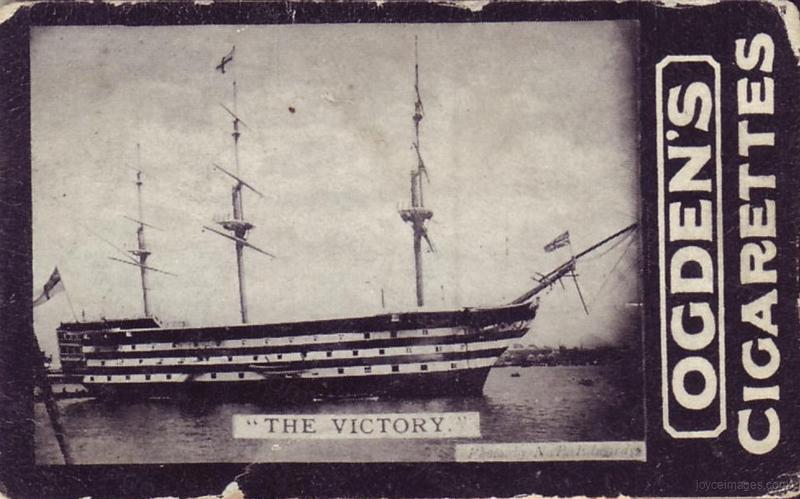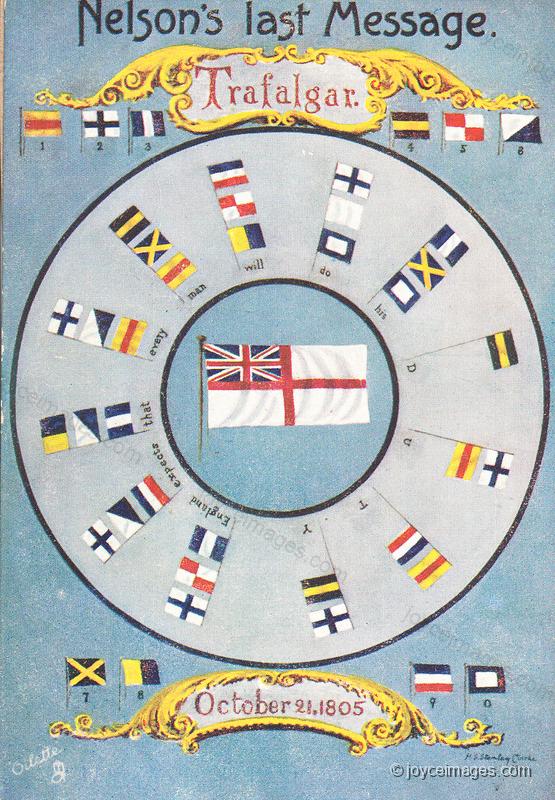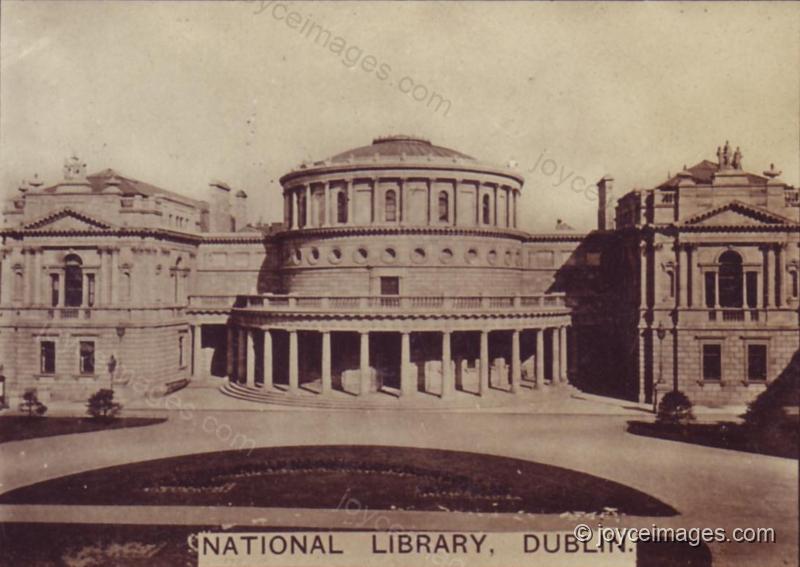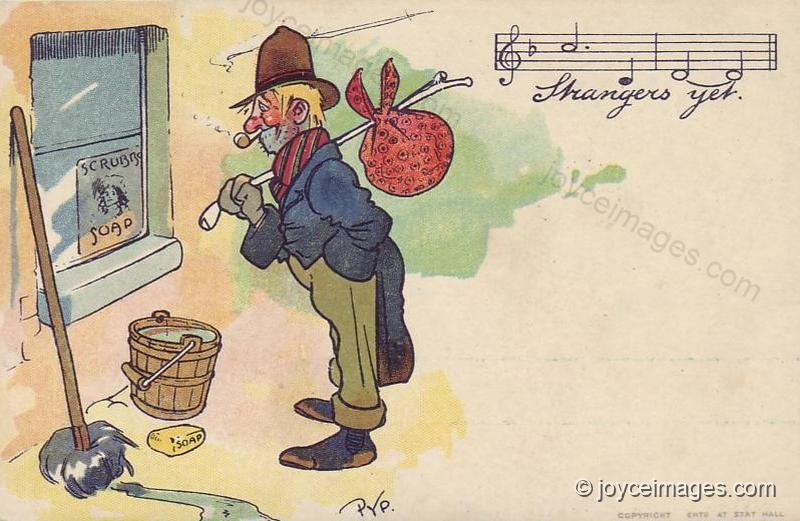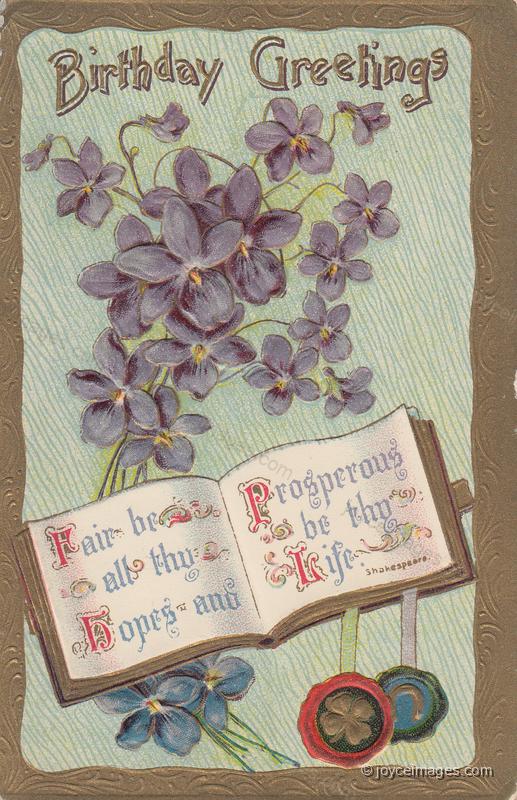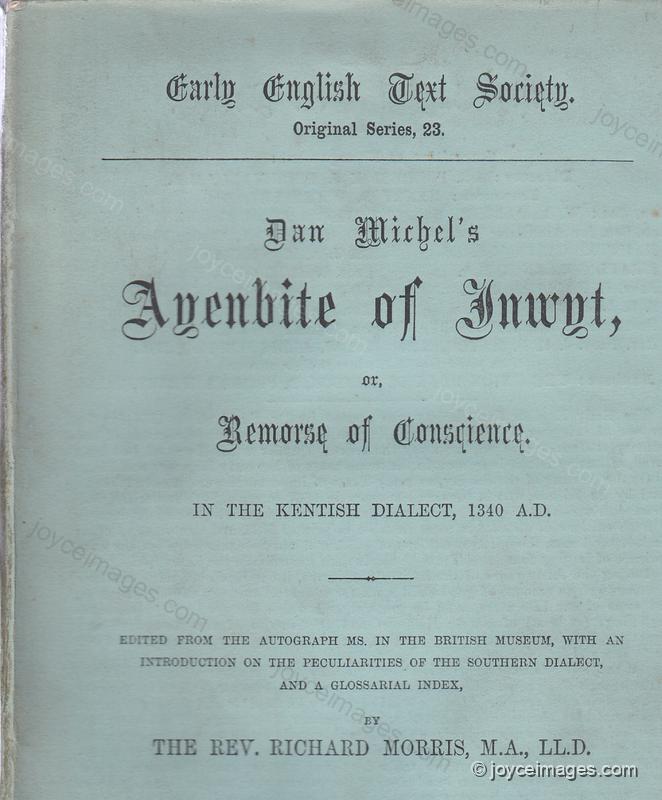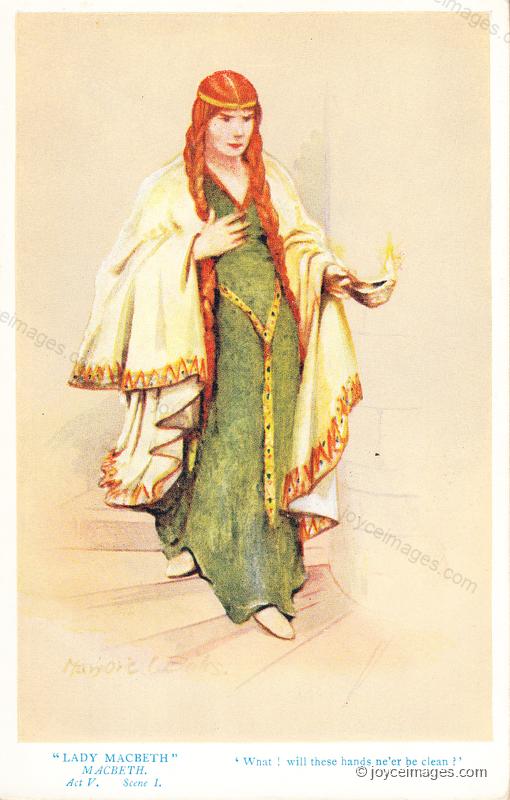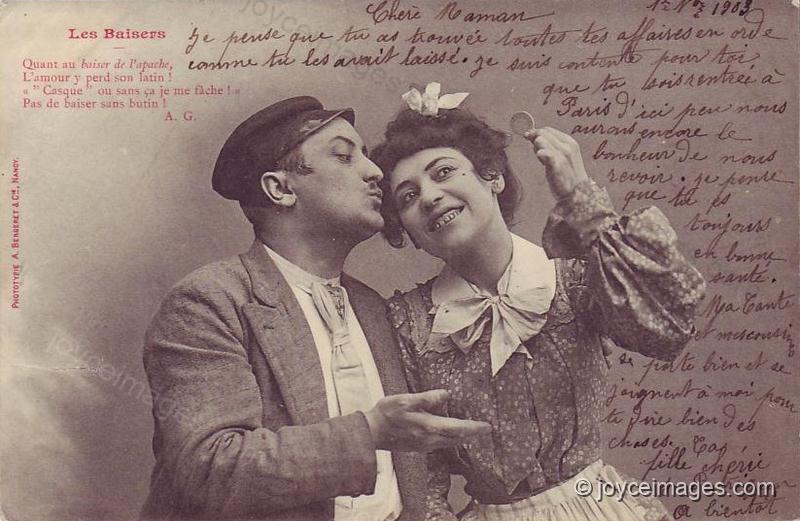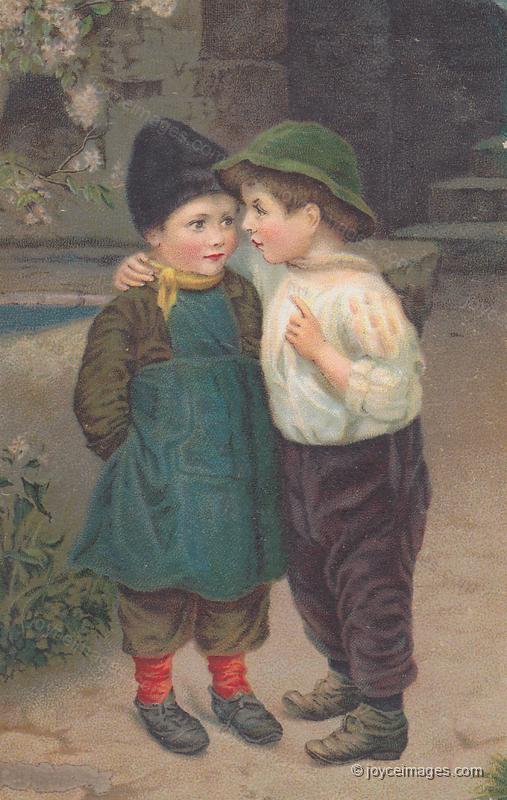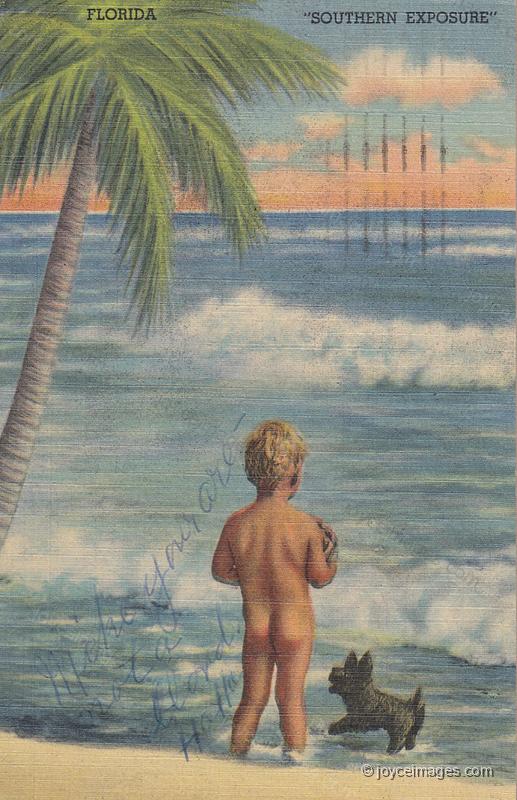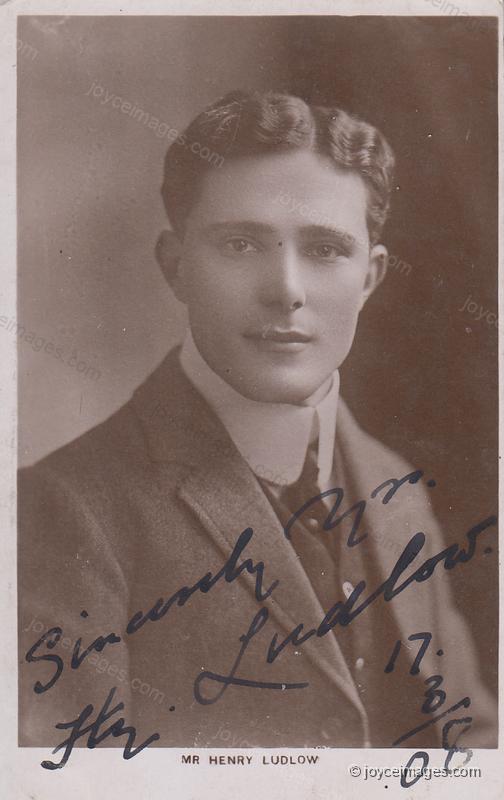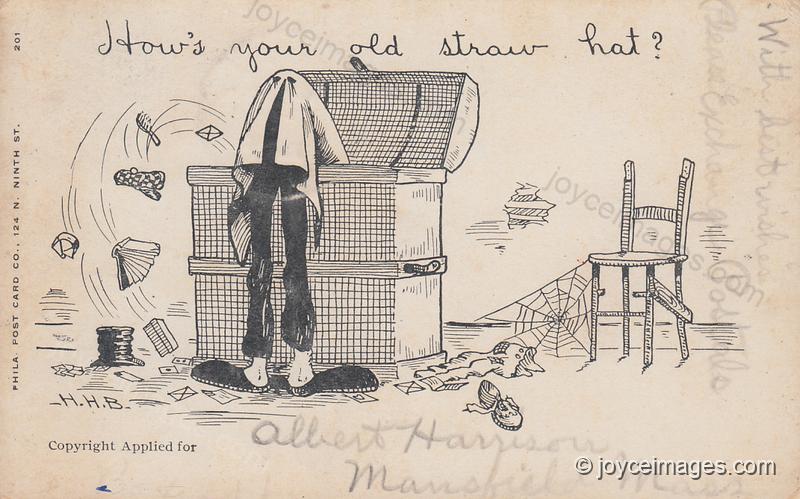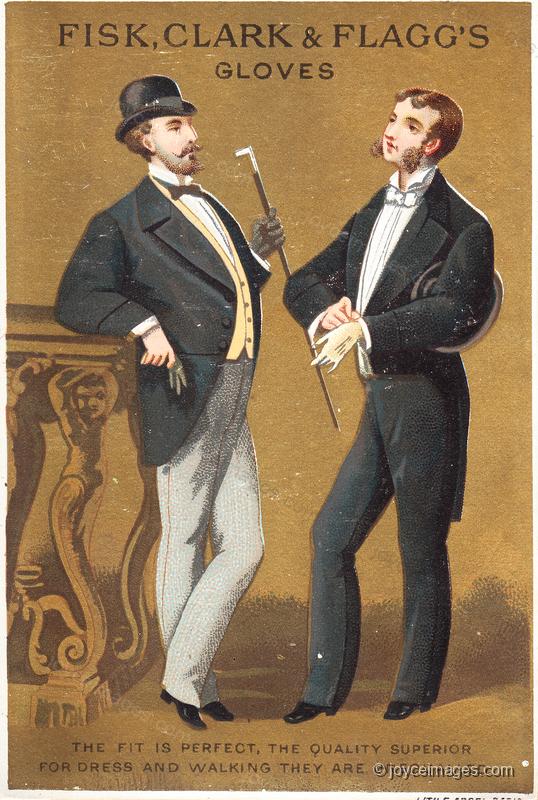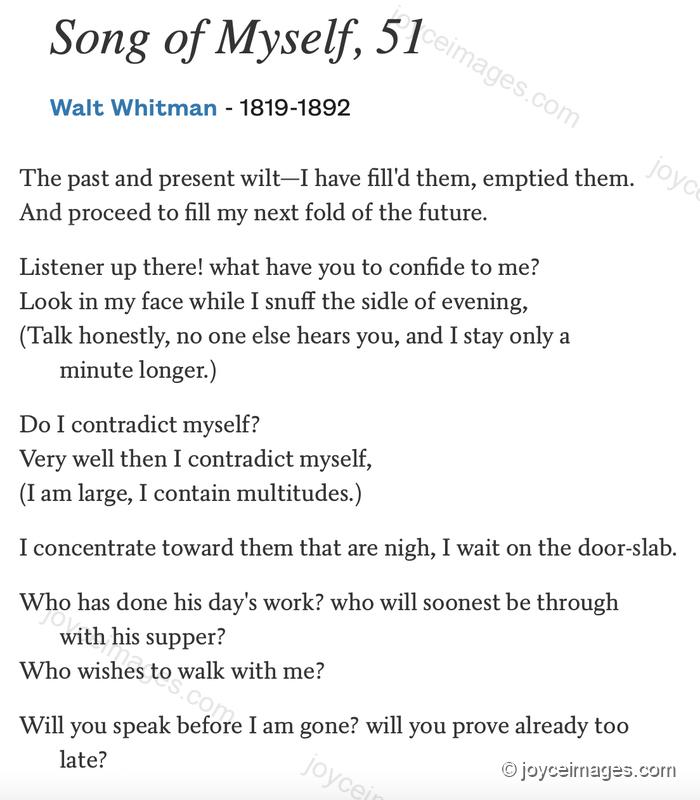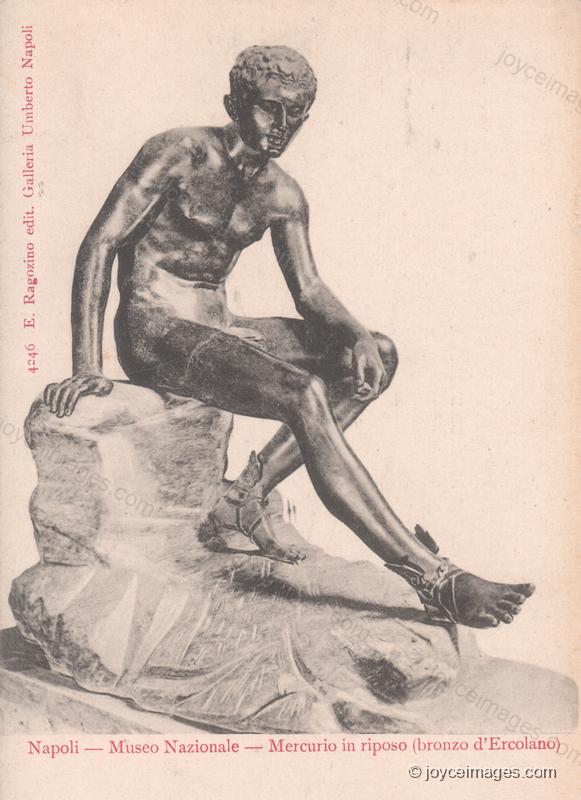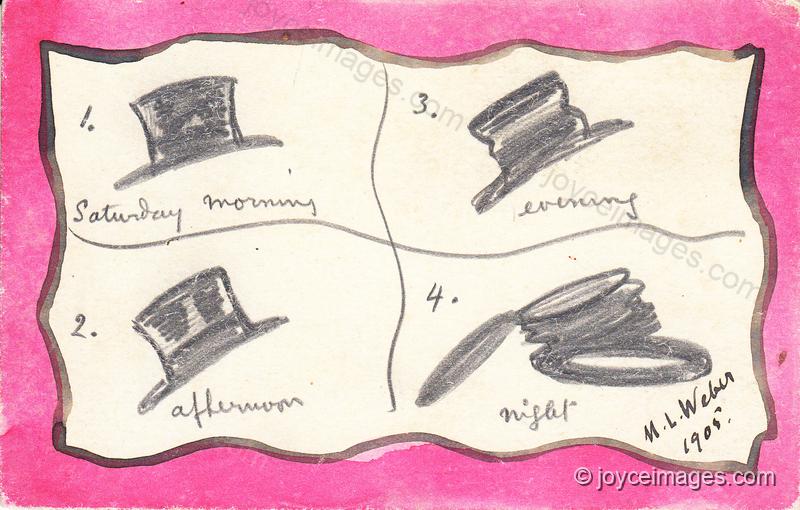The message was sent from the poop deck of H.M.S. Victory, in flag code, at 11.15 a.m. on October 21st 1805.
The signal was raised using Sir Home Popham's Telegraphic Code (1800), that was adopted by the Navy in 1803. The signal required twelve 'lifts' as shown on the left (the word 'duty' was not in the code book and had to be spelled out), and its transmission took some 4 minutes. The signalling team, led by Signal Lieutenant Pasco, would have consisted of up to 4 midshipmen and 6 seamen.
"- That reminds me, Haines said, rising, that I have to visit your national library today.
- Our swim first, Buck Mulligan said." (U1.469)
- Our swim first, Buck Mulligan said." (U1.469)
"He turned to Stephen and asked blandly:
- Is this the day for your monthly wash, Kinch?
Then he said to Haines:
- The unclean bard makes a point of washing once a month.
— All Ireland is washed by the gulfstream, Stephen said as he let honey trickle over a slice of the loaf." (U1.472)
- Is this the day for your monthly wash, Kinch?
Then he said to Haines:
- The unclean bard makes a point of washing once a month.
— All Ireland is washed by the gulfstream, Stephen said as he let honey trickle over a slice of the loaf." (U1.472)
"Haines from the corner where he was knotting easily a scarf about the loose collar of his tennis shirt spoke:
— I intend to make a collection of your sayings if you will let me.
Speaking to me. They wash and tub and scrub." (U1.478)
— I intend to make a collection of your sayings if you will let me.
Speaking to me. They wash and tub and scrub." (U1.478)
"Yet here's a spot.
— That one about the cracked lookingglass of a servant being the symbol of Irish art is deuced good.
Buck Mulligan kicked Stephen's foot under the table and said with warmth of tone:
— Wait till you hear him on Hamlet, Haines.
— Well, I mean it, Haines said, still speaking to Stephen. I was just thinking of it when that poor old creature came in.
— Would I make any money by it? Stephen asked.
Haines laughed and, as he took his soft grey hat from the holdfast of the hammock, said:
— I don't know, I'm sure.
He strolled out to the doorway. Buck Mulligan bent across to Stephen and said with coarse vigour:
— You put your hoof in it now. What did you say that for?" (U1.482)
— That one about the cracked lookingglass of a servant being the symbol of Irish art is deuced good.
Buck Mulligan kicked Stephen's foot under the table and said with warmth of tone:
— Wait till you hear him on Hamlet, Haines.
— Well, I mean it, Haines said, still speaking to Stephen. I was just thinking of it when that poor old creature came in.
— Would I make any money by it? Stephen asked.
Haines laughed and, as he took his soft grey hat from the holdfast of the hammock, said:
— I don't know, I'm sure.
He strolled out to the doorway. Buck Mulligan bent across to Stephen and said with coarse vigour:
— You put your hoof in it now. What did you say that for?" (U1.482)
"- Well? Stephen said. The problem is to get money. From whom? From the milkwoman or from him. It's a toss up, I think.
- I blow him out about you, Buck Mulligan said, and then you come along with your lousy leer and your gloomy jesuit jibes.
- I see little hope, Stephen said, from her or from him." (U1.497)
- I blow him out about you, Buck Mulligan said, and then you come along with your lousy leer and your gloomy jesuit jibes.
- I see little hope, Stephen said, from her or from him." (U1.497)
"Buck Mulligan sighed tragically and laid his hand on Stephen's arm.
— From me, Kinch, he said.
In a suddenly changed tone he added:
— To tell you the God's truth I think you're right. Damn all else they are good for. Why don't you play them as I do? To hell with them all. Let us get out of the kip." (U1.502)
— From me, Kinch, he said.
In a suddenly changed tone he added:
— To tell you the God's truth I think you're right. Damn all else they are good for. Why don't you play them as I do? To hell with them all. Let us get out of the kip." (U1.502)
"He stood up, gravely ungirdled and disrobed himself of his gown, saying resignedly:
— Mulligan is stripped of his garments.
He emptied his pockets on to the table.
—There's your snotrag, he said." (U1.508)
— Mulligan is stripped of his garments.
He emptied his pockets on to the table.
—There's your snotrag, he said." (U1.508)
"And putting on his stiff collar and rebellious tie he spoke to them, chiding them, and to his dangling watchchain." (U1.513)
"His hands plunged and rummaged in his trunk while he called for a clean handkerchief. God, we'll simply have to dress the character." (U1.514)
"Do I contradict myself? Very well then, I contradict myself." ([U1.517])
From Walt Whitman's poem Song of Myselfcourtesy of poetry.org
From Walt Whitman's poem Song of Myselfcourtesy of poetry.org
"A limp black missile flew out of his talking hands.
— And there's your Latin quarter hat, he said.
Stephen picked it up and put it on. Haines called to them from the doorway:
— Are you coming, you fellows?
— I'm ready, Buck Mulligan answered, going towards the door. Come out, Kinch. You have eaten all we left, I suppose.
Resigned he passed out with grave words and gait, saying, wellnigh with sorrow:
— And going forth he met Butterly" (U1.518)
— And there's your Latin quarter hat, he said.
Stephen picked it up and put it on. Haines called to them from the doorway:
— Are you coming, you fellows?
— I'm ready, Buck Mulligan answered, going towards the door. Come out, Kinch. You have eaten all we left, I suppose.
Resigned he passed out with grave words and gait, saying, wellnigh with sorrow:
— And going forth he met Butterly" (U1.518)
